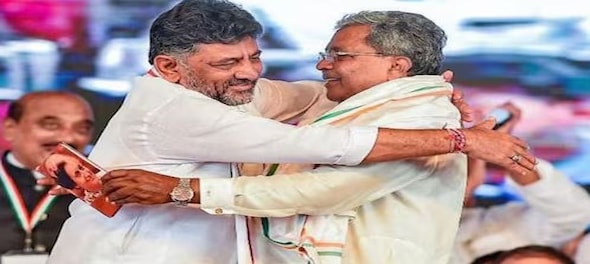
Expected by many surveys to have an edge in the Karnataka assembly election results, the Congress seems to be moving towards a clear victory, bagging about 136 out of the 224 seats in the state assembly. The BJP has been left far behind, with leads and victories of the party adding up to about 64 seats, and the Janata Dal (Secular) seems to have evaded a rout but ended a poor third with just about 20 seats coming its way.
There may be some changes by the time all the results are announced, but it is clear that the Congress will form the next government in the state with a clear majority.
Relief for Congress
Facing one electoral drubbing after another in recent times, the Congress has finally been able to win a big state that is also a hub of industry and the IT sector. This is likely to bring party workers some cause to cheer and also give the party a foothold in a large, rich, state before the crucial 2024 Lok Sabha polls.
Also Read: Karnataka Results 2023: Times when the state got full majority governments
However, too much celebration on the part of the party may be premature, as the experience of 2019 shows that victories in assembly elections for the Congress can easily reverse in Lok Sabha polls, when voters think they are choosing the Prime Minister rather than just choosing their Member of Parliament. That said, this victory was a much required one for the Congress to have manpower and resources firmly in place before the Lok Sabha polls.
Calibrated setback for the BJP
The defeat may not adversely impact the Lok Sabha prospects of the BJP much, as it seems to be clearly ahead of all other parties at the national level. However, Karnataka has once again displayed – as Delhi, Himachal Pradesh, Rajasthan, MP, Chhattisgarh and Bihar have done at least once each since 2014 – that contesting an election solely on the name of Prime Minister Narendra Modi cannot always work in assembly polls.
The Congress had been committing this mistake for long, trying to project only the ‘high command’ and ignoring powerful regional leaders like Himanta Biswa Sarma, Jagan Mohan Reddy, Amarinder Singh and Jyotiraditya Scindia, who eventually left the party and also damaged its prospects. In Karnataka, the BJP seems to have committed the same mistake by replacing BS Yedyurappa, its most popular face and the leader of the Lingayat community, with Basavraj Bommai, also a Lingayat, who failed to make an impact even if the Lingayats do not seem to have abandoned the BJP.
However, Bommai as a face – and in particular in the context of a state that does not give two consecutive terms to a party – could not match Siddaramaiah and DK Shivakumar of the Congress. The fact that Congress president Mallikarjuna Kharge is also from Karnataka may also have had a limited degree of symbolic effect. While Siddaramaiah and Shivakumar are rivals – and the rivalry may now grow – the regional leadership of the Congress in Karnataka looks more powerful than that of the BJP. And it is regional leaderships that win state polls in many parts of India. These cannot be won from Delhi.
Changing equations?
With DK Shivakumar being a Vokkaliga, many have speculated whether the JD (S), a party already on the decline, may be losing some Vokkaliga support to the Congress. This ‘shift’ may be one of the reasons for the surge in the seats of the Congress even as both BJP and JD (S) are losing seats.
Another shift may be an outcome of the large polarisation that Karnataka saw on the question of hijab in government schools and the recent Bajrang Dal controversy. It is likely that Muslims have chosen the Congress in very large numbers to keep out the BJP rather than splitting their votes between the Congress and the JD (S). The Congress is their best bet in a context of polarisation, as the JD (S) has a past record of government formation in alliance with the BJP and is not really a challenge for the party.
The results may not impact the Lok Sabha results but come as a morale booster for a dejected Congress cadre and offer some lessons to the BJP on the dynamics of assembly elections as distinct from Lok Sabha elections.
— The author, Vikas Pathak, is a senior political journalist and columnist. The views expressed are personal.
Read his previous articles here
(Edited by : C H Unnikrishnan)
First Published: May 13, 2023 5:08 PM IST
Check out our in-depth Market Coverage, Business News & get real-time Stock Market Updates on CNBC-TV18. Also, Watch our channels CNBC-TV18, CNBC Awaaz and CNBC Bajar Live on-the-go!


10% discount on fare on Mumbai Metro lines 2 and 7A on May 20
May 3, 2024 2:40 PM
'Rahul Gandhi deserted Amethi due to fear of Smriti Irani': How BJP plans to puncture Congress' UP plan
May 3, 2024 1:12 PM

